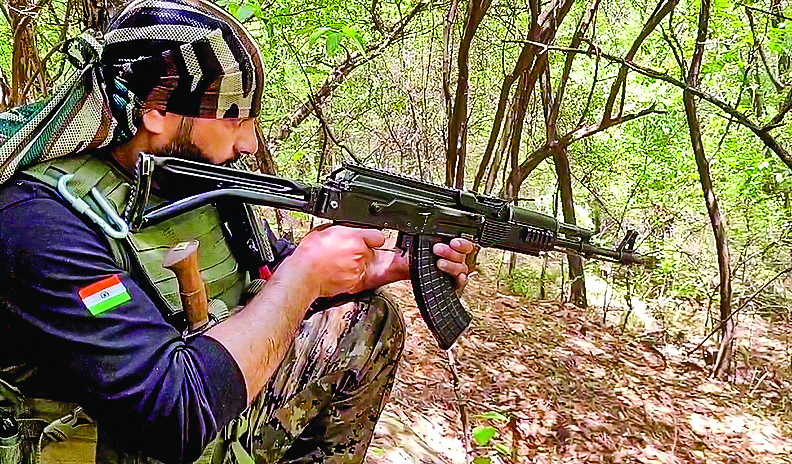NEW DELHI: The death of more than 50 security personnel in Jammu since August 2021 has brought into focus one of the most important parts of counter-terror operations: the generation of credible intelligence. Need has become urgent following the spike in terror operations masterminded by the Sino-Pakistan axis to disrupt life and prosperity in Jammu and Kashmir, and to create addiction and violence in Punjab and elsewhere through smuggling of narcotics.
The Sunday Guardian spoke to multiple stakeholders who are, in one way or other, part of the efforts to eradicate terrorism from J&K. One key issue that emerged from these interactions was the lack of solid and workable intelligence, which has led to security personnel being caught in ambushes by terrorists rather than the other way around.
Sources said the majority of the deaths suffered by Indian officers and soldiers would not have happened if the relevant intelligence agencies had at least predicted what the terrorists were planning to do, even if not when and where.
The Jammu and Kashmir Police, specifically its ability to generate much stronger intelligence than its counterparts given its local presence, has come under scrutiny for not providing the intelligence expected, both quantitatively and qualitatively, to the central forces. This has resulted in at least ten ambushes by terrorists since the above-mentioned period.
Sources in the security establishment said that the local police’s intelligence network in the hinterland is under scrutiny for its inefficacy. According to officials, it appears that the terrorists, who are mostly from Punjab and Khyber Pakhtunkhwa provinces of Pakistan, have strategically refrained from targeting the personnel of Jammu and Kashmir Police (JKP) to avoid provoking a backlash from the state force that could result in the flow of credible intelligence against them. This has left the JKP less engaged in counter-terrorism intelligence efforts, further weakening the overall response to terrorist activities.
The Jammu and Kashmir Police, traditionally tasked with maintaining law and order, have found themselves at the forefront of counter-terrorism operations in one of the most volatile regions of India due to their significant local presence and understanding of the region’s socio-political dynamics.
The Intelligence Bureau (IB) and Research and Analysis Wing (R&AW) in the field of collecting intelligence share inputs with the Indian Army, whose job is to use the intelligence generated by these specialized agencies and act accordingly. Both the IB and R&AW have worked to penetrate the intricate intelligence networks maintained by terrorist groups, otherwise much of the information provided by sources of these agencies would be akin to “shooting in the dark.”
The issue of quality intelligence needing to be generated has focused attention in the field of human to human intelligence. More and more advanced communication methods are employed by foreign
To be sure, the Army has its own intelligence setup, the Military Intelligence (MI) responsible for gathering, analysing, and interpreting information about enemy forces and potential threats. Sources said that the resources available to the MI needs to rise, as well as to the local police, the IB and the R&AW.
Local police stations are supposed to be the main hubs for generating intelligence across the country. Additionally, the Intelligence Bureau (IB) being a specialized, separate agency is given a lot of resources for gathering intelligence.
Voices from within the security apparatus present in the state are now calling for an end to the ceasefire agreement between India and Pakistan that was established in February 2021. These voices have cited the current ground realities, arguing that the ceasefire agreement has allowed terrorist groups to regroup and strengthen themselves, while it has left Indian forces vulnerable. The calls for ending the ceasefire are based on the premise that a more aggressive and proactive stance is necessary at the international border to curb the rising tide of terrorism and secure the region effectively. The ceasefire, intended to bring stability, has instead provided a strategic advantage to the adversary. While India is losing its soldiers, no such cost is being felt by the Pakistan army as it is losing terrorists who are officially not seen as a part of the army.

